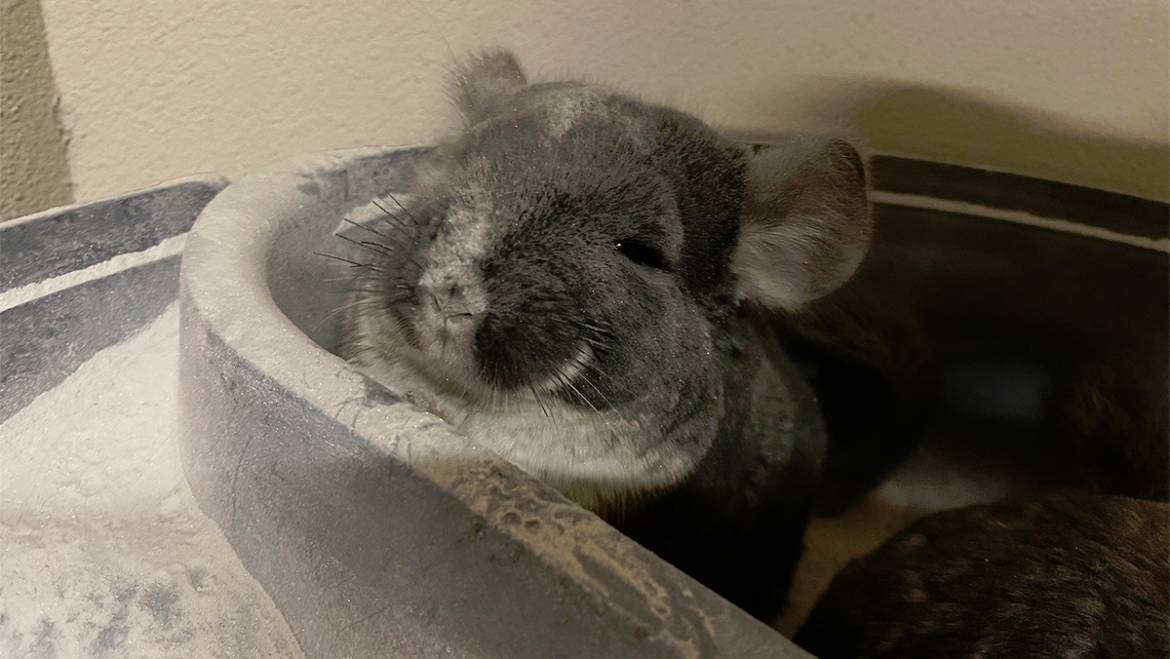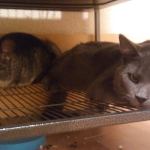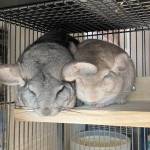If you’re considering adopting a chinchilla but have concerns about allergies, you’re not alone. Allergies are a common issue for many pet owners, and it’s important to know if chinchillas are hypoallergenic before bringing one into your home. In this article, we’ll explore the question of whether chinchillas are hypoallergenic and provide you with the information you need to make an informed decision.
What Does Hypoallergenic Mean?
Before we dive into the topic of chinchillas and allergies, let’s define what we mean by “hypoallergenic.” A hypoallergenic pet is one that is less likely to cause an allergic reaction in humans. This can be due to a variety of factors, such as the pet’s coat type or the amount of dander they produce.
Chinchillas and Allergies
Chinchillas are often touted as hypoallergenic pets due to their lack of fur oils and low dander production. However, it’s important to note that no pet is truly hypoallergenic, and some people may still experience allergies when around chinchillas.
Chinchilla fur is different from other types of animal fur in that it lacks fur oils, which are a common allergen for many people. Additionally, chinchillas produce less dander than other pets, which can also help reduce the risk of allergic reactions.
However, it’s worth noting that some people may still experience allergies when around chinchillas. This is because everyone’s immune system is different, and some people are more sensitive to certain allergens than others.
Symptoms of Chinchilla Allergies
If you’re considering adopting a chinchilla but are concerned about allergies, it’s important to know the symptoms of chinchilla allergies. The most common symptoms of chinchilla allergies include:
- Sneezing
- Itchy or watery eyes
- Runny nose
- Skin rash or hives
If you experience any of these symptoms when around chinchillas, it’s possible that you may be allergic to them. It’s important to speak with a healthcare professional to determine the cause of your symptoms.
Reducing Allergies in Chinchillas
While chinchillas are often considered hypoallergenic pets, there are still steps you can take to reduce the risk of allergies in your home. Some tips to reduce allergies in chinchillas include:
- Clean Their Cage: Regularly clean your chinchilla’s cage to remove any built-up dust or dander. This can help reduce the amount of allergens in the air.
- Provide a Dust Bath: Chinchillas require a dust bath to keep their fur clean and healthy. Using a dust that is specifically designed for chinchillas can help reduce the amount of dust and dander in the air.
- Wash Your Hands: After handling your chinchilla, be sure to wash your hands thoroughly to remove any dander or dust that may have accumulated on your skin.
- Keep the Cage in a Well-Ventilated Area: Proper ventilation can help reduce the amount of allergens in the air. Keep your chinchilla’s cage in a well-ventilated area of your home.
The Pros and Cons of Owning a Chinchilla as a Hypoallergenic Pet
As with any pet, there are both pros and cons to owning a chinchilla as a hypoallergenic pet. Here are some things to consider before bringing a chinchilla into your home:
– Pros:
- Low Allergen Levels: Chinchillas are known to produce lower levels of allergens than many other types of pets. This is because they do not have fur like cats and dogs, but rather have dense, soft hair that does not shed as much. Additionally, chinchillas are known to produce fewer allergens in their urine and saliva than other pets.
- Clean and Odorless: Chinchillas are naturally clean animals that do not require frequent baths. They also do not produce a strong odor like some other pets, which can be a relief for those who are sensitive to smells.
- Quiet and Low-Maintenance: Chinchillas are generally quiet animals and do not require a lot of maintenance. They do not need to be walked like dogs, and they do not require a lot of attention like some other pets. This can be ideal for people who have busy lifestyles or who are looking for a pet that is easy to care for.
– Cons:
- Allergies Can Still Occur: While chinchillas are considered to be hypoallergenic, it is still possible for some people to be allergic to them. If you have never been around a chinchilla before, it is a good idea to spend some time with one before bringing one into your home to make sure that you do not have any allergic reactions.
- Chinchillas are Fragile: Chinchillas are delicate animals that can easily be injured if they are mishandled. This can be a concern if you have young children in the home or if you are not experienced with handling small animals.
- High Maintenance Habitat: While chinchillas themselves do not require a lot of maintenance, their habitat does. Chinchillas require a large cage with plenty of room to climb and play, as well as a variety of toys and accessories to keep them entertained. This can be expensive and time-consuming to set up and maintain.
In conclusion, chinchillas can be a great choice for people with allergies who are looking for a low-maintenance, clean, and odorless pet. However, as with any pet, it is important to consider both the pros and cons before making a decision. If you are considering a chinchilla as a pet, be sure to do your research and talk to a veterinarian or experienced chinchilla owner to ensure that you are prepared to provide the care and attention that these animals require.







